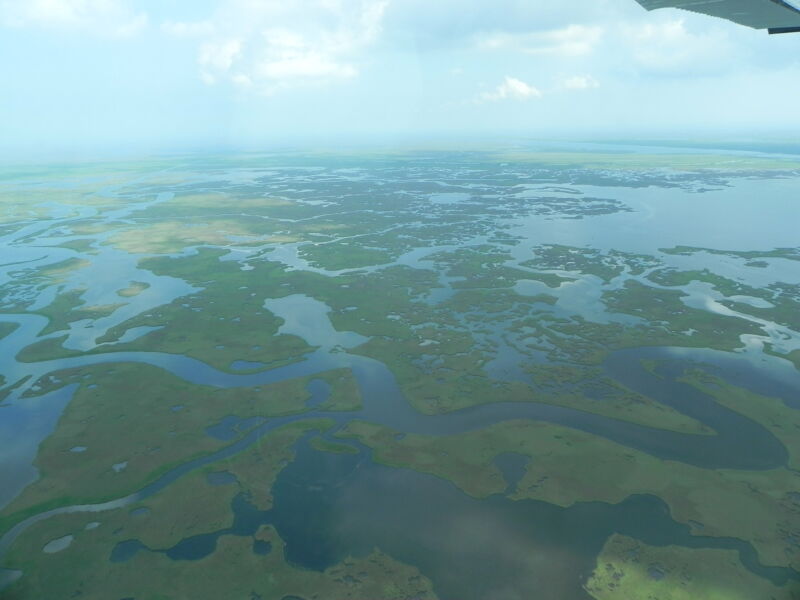
Enlarge / The drowning of Louisiana’s wetlands is “inevitable.” (credit: Louisiana Sierra Club)
Since 1932, coastal wetlands in Louisiana have declined by about 25 percent. At its fastest, the decline was around one football field lost every 34 minutes; at its slowest, every 100 minutes. The Pelican State is losing ground faster than any other state in the contiguous United States. And those losses reach far beyond its borders: coastal Louisiana plays a crucial role in fisheries, shipping, and oil and gas production.
In recent years, the wetlands have been faring better than in previous decades, possibly because there hasn’t been a Katrina-level storm in that time. But a study published last week in Science Advances suggests that this is temporary reprieve. With sea levels rising as rapidly as they are, the wetlands, including the famed Mississippi Delta, are likely to be gone in a matter of decades—or, at most, centuries.
Tipping point
Coastal Louisiana is currently home to 15,000 square kilometers of marshland, a critical ecosystem held together by a complex, interlocking set of processes. The tide washes in; plants grow and die; sediment is brought in by rivers and builds up. If the system changes—for instance, if sea levels rise rapidly—the marsh changes, too.
Read 10 remaining paragraphs | Comments
Source: Ars Technica – New data indicates the Mississippi Delta is on borrowed time
